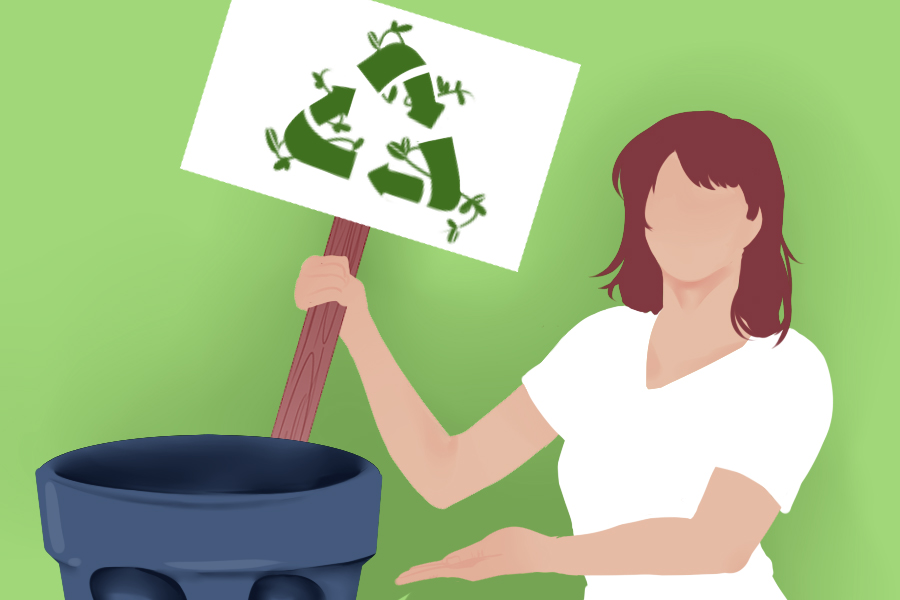
UC Davis moves toward goal of waste-free campus by 2020
It seems that a number of people fully embrace the zero waste trend. One woman dedicated herself to zero waste for four years and the amount of trash that she accrued filled only the space of a large peanut butter tub. Another person tried to completely remove plastic from her life. Meanwhile, one can take a look at a typical college bedroom and see a trash can overflowing with used floss and failed midterms with fuzzy tendrils of mold growth.
However, as daunting as eliminating waste from your lifestyle is, it’s important to start with the small things.
“The easiest way is to make little changes,” said Kelly O’Day, the production manager and sustainability coordinator for the CoHo. “You can’t do everything all at once.”
For example, a new rule was made so that CoHo staff can only get free coffee if they bring their own cups, as opposed to using the normal disposable cups. While this rule only affects a relatively small amount of people, it is a tangible difference and reinforces a culture of environmental thoughtfulness within the CoHo.
Many places, including the CoHo and Peet’s, will not only fill your cup with your drink of choice, but will also give discounts if you bring your own ware. And while trash is often inevitable while going out, simply being mindful of what you are using goes a long way. Forgoing a paper bag with your to-go order or using reusable bags instead of plastic bags for grocery shopping are just a couple ways to get started.
A big part of living waste free is not only minimizing trash, but also minimizing food waste. Sustainability coordinators on campus are pushing for more people to compost their waste, as much of what we throw away is either food or made of organic materials. However, it isn’t as easy as simply placing more compost bins around campus.
“I tried really hard to get compost bins in the library,” said fourth-year sustainable environmental design major Brooke Garcher. “In theory, [it] sounded like a really good idea, but there’s just a huge educational component; just because there’s a compost bin there doesn’t mean people are going to use with the right purpose.”
She also stressed the cost of maintaining separate trash bins on campus, which have to be serviced differently from normal bins. These two combined have contributed to the limited existence of compost bins outside the CoHo.
Sue Vang, the engagement and zero waste program manager in the Office of Environmental Stewardship and Sustainability, also emphasized the importance of trash-mindfulness education, but added that it’s on the university to provide awareness for the issue. The CoHo conducts trash audits to determine how people are sorting their trash, and while the compost bins are for the most part uncontaminated, the landfill stream often contains compostable waste because people don’t know what goes where.
“Signage is very important […because] people are very visual,” Vang said. “If they see a cup, and they see the same picture of their cup over one bin, they think ‘oh, this is the right one.’ But if they have a cup and the cup in the sign isn’t exactly what they’re holding, then they’re a little less sure of what to do.”
Instances like these indicate that to reach its goal of being waste free by 2020, UC Davis has much left that needs to be accomplished. In the meantime, simply being conscious of whenever you feel the need to throw something away can begin the glacial process of changing your consumption habits.
“Not thinking about your impacts is a big [reason] why people are wasteful,” Garcher said. “As long as you are conscious, [you will feel] motivated to continue.”
Written By: Dylan Hendrickson — science@theaggie.org



